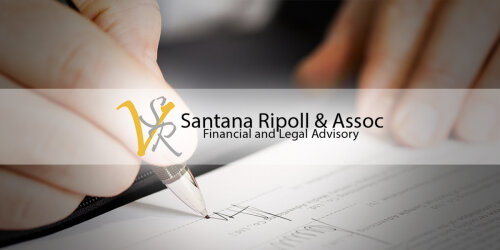Best Energy, Environment & ESG Lawyers in Puerto Plata
Share your needs with us, get contacted by law firms.
Free. Takes 2 min.
List of the best lawyers in Puerto Plata, Dominican Republic
About Energy, Environment & ESG Law in Puerto Plata, Dominican Republic
The legal field of Energy, Environment, and Environmental, Social, and Governance (ESG) matters is gaining significance in Puerto Plata, Dominican Republic. This coastal region, known for its tourism, diverse ecosystems, and growing industries, faces unique challenges and opportunities in balancing development with sustainable environmental practices. Local and national regulatory frameworks govern how businesses operate in relation to energy production, environmental protection, and responsible corporate behavior. Increasingly, entities ranging from investors to government bodies require proof of environmental stewardship and compliance with ESG standards, making legal counsel in these areas essential.
Why You May Need a Lawyer
Legal support in Energy, Environment, and ESG can be necessary for a variety of reasons in Puerto Plata. Common scenarios include:
- Obtaining environmental permits for real estate and tourism developments
- Complying with regulations for renewable energy projects such as solar or wind farms
- Managing land use, water rights, and waste disposal in accordance with environmental laws
- Resolving disputes between landowners, companies, and government over resource management
- Ensuring that business operations align with ESG reporting and best practices
- Dealing with environmental impact assessments required by law
- Responding to inspections, fines, or enforcement actions by authorities
- Structuring investments to meet ESG criteria for international or institutional investors
- Assisting companies in creating internal ESG policies and sustainability reports
In these situations, legal guidance helps prevent costly mistakes, ensures compliance, and supports long-term viability for both individuals and businesses.
Local Laws Overview
In Puerto Plata, the legal framework for energy, environment, and ESG draws on both national and local regulations. Key aspects include:
- Environmental Law No. 64-00: Establishes fundamental principles for the protection of natural resources and biodiversity, and regulates environmental impact assessments, licensing, and community participation.
- Renewable Energy Incentives Law (No. 57-07): Provides incentives for investments in renewable energy, including exemptions and benefits for solar, wind, and biomass projects.
- Urban and Coastal Zone Regulations: Controls land use, development permits, and environmental management to safeguard sensitive coastal and urban areas.
- ESG Standards and Reporting: While not fully codified into local law, there is growing pressure from both regulators and the private sector for adherence to international ESG standards in transparency, anti-corruption, and sustainability reporting.
- Municipal Ordinances: Local authorities may have additional rules on waste management, water use, and construction requirements in the Puerto Plata region.
Violations of these laws can result in significant administrative sanctions, including fines, suspension of activities, or even criminal proceedings in severe cases.
Frequently Asked Questions
What permits do I need for a new construction project near the beach in Puerto Plata?
Typically, you will need an environmental impact assessment and permits from the Ministry of the Environment and Natural Resources. Coastal developments also require compliance with specific zoning and land use regulations. Consulting a lawyer can help ensure all submissions and requirements are met properly.
Are there incentives for renewable energy installations in the Dominican Republic?
Yes, under Law No. 57-07, there are tax exemptions and other incentives for qualifying renewable energy projects. These incentives apply to equipment, infrastructure, and sometimes to ongoing operations, but the application process is rigorous and benefits are conditional on compliance.
What are ESG requirements for local businesses?
While not always mandatory, many businesses are expected to adopt ESG policies covering environmental impact, labor practices, governance, and anti-corruption. Larger companies, especially those seeking outside investment, may face formal reporting obligations.
Who enforces environmental regulations in Puerto Plata?
The Ministry of Environment and Natural Resources is the primary authority, with the support of local municipal governments and specialized agencies for certain sectors like water management or protected areas.
What should I do if I receive an environmental fine or inspection notice?
Act quickly to understand the basis of the action. Consult a lawyer experienced in environmental matters to help you respond, appeal, or negotiate a resolution with authorities, and to ensure compliance to prevent future issues.
How do I prepare an environmental impact study for my business?
Environmental impact studies are technical documents typically prepared by environmental consultants. However, a lawyer ensures compliance with submission procedures, reviews documentation, and manages interactions with authorities.
Can foreign investors participate in local energy or environmental projects?
Yes, the Dominican Republic welcomes foreign investment in these sectors. However, investors must comply with local regulations and may need legal guidance in structuring investments, obtaining permits, and meeting ESG criteria.
Are there legal risks for businesses not following ESG practices?
Beyond reputational damage, businesses may face difficulties in obtaining permits, attracting investment, or qualifying for incentives if they ignore ESG standards. In some cases, lack of compliance may lead to sanctions or legal challenges.
What are the key environmental concerns in Puerto Plata?
Important issues include coastal erosion, water quality, deforestation, waste management, and impacts from tourism and real estate development. Proper legal compliance is essential to address these challenges while avoiding penalties.
How long does it take to secure environmental permits?
Timelines can vary depending on project complexity and regulatory requirements, but the process can take several months. Early legal involvement can help streamline the procedure and avoid delays resulting from incomplete or inadequate documentation.
Additional Resources
Individuals seeking legal advice or more information on Energy, Environment, and ESG in Puerto Plata may find the following resources helpful:
- Ministry of Environment and Natural Resources (Ministerio de Medio Ambiente y Recursos Naturales)
- National Energy Commission (Comisión Nacional de Energía)
- Chamber of Commerce and Production of Puerto Plata
- Association of Renewable Energy (Asociación de Energía Renovable de la República Dominicana)
- Local bar associations specializing in environmental and corporate law
- International organizations and NGOs working on sustainable development in the region
Next Steps
If you believe you need legal assistance in the realms of energy, environment, or ESG in Puerto Plata, it is advisable to:
- Gather all relevant documents related to your matter, such as permits, government notices, and business records
- Research local law firms or legal professionals experienced in the relevant area
- Schedule a legal consultation to discuss your specific needs and concerns
- Prepare a list of questions or issues you want addressed
- Follow up with recommended actions and compliance steps provided by your legal advisor
By taking these steps, you can better protect your interests, ensure compliance, and promote responsible and sustainable business practices in Puerto Plata.
Lawzana helps you find the best lawyers and law firms in Puerto Plata through a curated and pre-screened list of qualified legal professionals. Our platform offers rankings and detailed profiles of attorneys and law firms, allowing you to compare based on practice areas, including Energy, Environment & ESG, experience, and client feedback.
Each profile includes a description of the firm's areas of practice, client reviews, team members and partners, year of establishment, spoken languages, office locations, contact information, social media presence, and any published articles or resources. Most firms on our platform speak English and are experienced in both local and international legal matters.
Get a quote from top-rated law firms in Puerto Plata, Dominican Republic — quickly, securely, and without unnecessary hassle.
Disclaimer:
The information provided on this page is for general informational purposes only and does not constitute legal advice. While we strive to ensure the accuracy and relevance of the content, legal information may change over time, and interpretations of the law can vary. You should always consult with a qualified legal professional for advice specific to your situation.
We disclaim all liability for actions taken or not taken based on the content of this page. If you believe any information is incorrect or outdated, please contact us, and we will review and update it where appropriate.
Browse energy, environment & esg law firms by service in Puerto Plata, Dominican Republic
Puerto Plata, Dominican Republic Attorneys in related practice areas.











